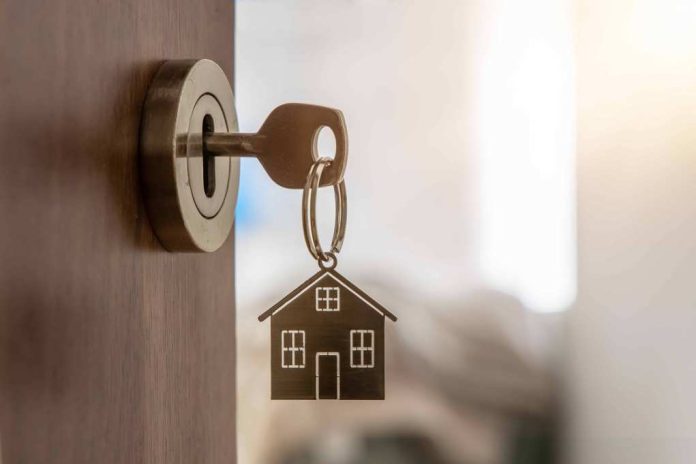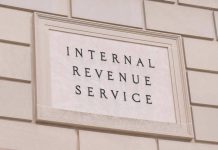
Buying a home is a stressful, exciting, and confusing time. That’s just some of the emotions that are involved in the process of buying a house. The process to buy a house is already something that requires patience, knowledge, and time but it can be even more difficult if your credit score isn’t where it needs to be. Your credit score is an important part of buying a home since most people don’t buy a home with only cash and need financing to help them afford the purchase. That means they would need to get a mortgage. However, with a bad credit score, lenders can see a lot of risk when it comes to you as a borrower. That is why you should keep in mind different ways of credit repair for home purchase!
Why is Your Credit Score Important to Buy a House?
Before learning ways to repair your credit score, you should make sure you have a clear understanding of what a credit score is. Your credit score is usually a number that is between 300 and 850. This number is what lenders use to better understand how you handle the funds that you borrow. The score is calculated by credit bureaus that use information found on your credit report. There are three major credit bureaus which are Transunion, Experian, and Equifax.
Your credit report has information about your credit file which includes items like late payments, age of your credit history, credit card debt, etc. The credit bureaus also use scoring models in order to determine how each item on your credit report will impact your score. There are two scoring models. There is the FICO model and the VantageScore model. However, the FICO scoring model is used by more lenders compared to the VantageScore model.
Like we said earlier, your score is used by lenders as a way to better understand the risk involved with you as a borrower. If you have a good score, that shows that you know how to handle the money you borrow. That means lenders can expect you to comply with the loan agreement. On the other hand, if you have a bad credit score, then lenders can expect you to have a hard time handling the money you borrowed. This is important because typically you need to borrow money when you buy a house.
What Factors Affect Your Score?
Since the FICO scoring model is more popular, that is what we will be using as reference in terms of how these factors impact your score. There are five factors that can affect a credit score. These factors include:
- History of Payments (35%)
- Credit Utilization Ratio (30%)
- Length of Credit History (15%)
- Hard Inquiries (10%)
- Mix of Credit (10%)
History of Payments
Your payment history is the most important factor when it comes to your credit score. That is because this is one of the easiest ways that lenders can understand how you handle the money you borrow. Your history of payments would include on-time payments, late payments, etc. This factor accounts for 35% of your score!
Credit Utilization Ratio
Many people haven’t even heard the term credit utilization ratio before. Luckily, while it may sound like a hard term, it is a pretty simple concept. Your credit utilization ratio refers to how much credit you use compared to your overall credit limit. For example, if you have a total credit limit of $2,000 but currently use $800 then your credit utilization ratio is 40%. This is the second most important factor of your score and accounts for 30% of it.
Length of Credit History
The third factor that impacts your score is your length of credit history. This factor accounts for 15% of your score. While it may not be the most impactful factor, it is still something to be mindful of. Your length of credit history looks at the age of your credit accounts. This includes your oldest accounts, your newest accounts, the average age of your credit accounts, etc.
Hard Inquiries
Hard inquiries, also known as hard pulls, account for 10% of your credit score. There are two types of inquiries that consumers deal with. There are soft inquiries and hard inquiries. Soft inquiries do not have an impact on your score. On the other hand, hard inquiries are a different story. Lenders need written permission to submit a hard inquiry on your credit report. This allows them to get an in-depth look at your credit file in order to better understand you as a borrower.
Mix of Credit
Finally, your mix of credit accounts for 10% of your credit score as well. That’s because there are two main types of credit accounts. There are installment loans and revolving credit. If you have a variety of credit accounts, this can show lenders that you can handle credit in different forms!
What is a Good Credit Score to Buy a House in 2022?
The credit score you need to buy a house varies based on factors like your loan type, lender, etc. That is why it is important to know what type of loan you want to get before setting a goal for yourself!
Understanding Different Home Loan Options
When most people think of buying a home, they may think of a conventional mortgage loan. Mortgages are loans that are used to purchase or maintain real estate. There are more options than people may realize! Some popular home loans include:
- Conventional Loans
- Federal Housing Administration (FHA) Loans
- Veterans Affairs (VA) Loans
- United States Department of Agriculture (USDA) Loans
Conventional Loans
You can pretty much break down home loans into two categories: conventional loans and government-insured loans. The difference is that some loans like a USDA home loan, FHA home loan, etc. are insured by the government. On the other hand, conventional loans are not. There are plenty of different guidelines when it comes to this home loan option. That means there is no standardized guideline for conventional loans. However, a general rule of thumb is that borrowers can expect to need a credit score of at least 620 and a debt-to-income ratio of 50% or less.
When looking at conventional loans, there are plenty of different options to choose from! Some options include:
- Adjustable/Fixed Rate Conventional Loans
- Conforming Conventional Loans
- Jumbo Conventional Loans
Adjustable/Fixed Rate Conventional Loans
You can either choose an adjustable rate conventional loan or a fixed rate conventional loan. Fixed-rate mortgage loans have the same interest rate throughout the course of the loan. However, adjustable rate conventional loans are different since their interest rates vary. Typically with an adjustable rate loan you can expect to have the same interest rate for 3 to 10 years. Once that timeframe is up, your interest rate can adjust annually based on the housing market rates.
Conforming Conventional Loans
This loan option has lending limits and eligibility guidelines based on the standards set by Fannie Mae and Freddie Mac. For example, in 2022 the baseline limit for this loan option is $647,200 for 1-unit properties.
Jumbo Conventional Loans
If you are interested in getting a loan that is more than the lending limits for conforming loans, then you may benefit from a jumbo conventional loan. While these loans can provide borrowers the chance to get higher loan limits, they typically require a higher credit score (like at least 700), a lower debt-to-income ratio, potentially a higher interest rate and even a bigger down payment!
Federal Housing Administration (FHA) Loans
FHA loans are a type of government-backed loan. This means that the government insures this loan that is issued by an approved financial institution. These loans are a great option for those that are low or middle income. That’s because they have lower down payment requirements than a lot of conventional loans and even lower credit score requirements to qualify.
In fact, individuals may be able to qualify even if their credit score is as low as 500! However, the better the credit score then the better the loan terms. For example, an individual with a credit score of 500 would need to provide a down payment of 10% while an individual with a score of 580 would need to provide a down payment of just 3.5%.
Veterans Affairs (VA) Loans
This loan opportunity is insured by the United States Department of Veterans Affairs. Just like FHA loans, these are government-backed but are issued by approved financial institutions. This is a popular option for borrowers looking to buy a home because there are no down payment requirements, no mortgage insurance requirements, and no prepayment penalties. However, it is important to keep in mind that the specific loan terms will vary by lender!
United States Department of Agriculture (USDA) Loans
Borrowers that are interested in buying a home in a rural area may be able to benefit from this loan option. There are 2 main types of loans. There is the USDA guaranteed loan or a USDA direct loan. If it is a guaranteed loan then it is similar to VA and FHA loans because it is government-backed but issued by an approved lender. On the other hand, if it is a USDA direct loan then it is provided directly by the government.
This is a great option for those that want to live in a rural area and cannot get a conventional loan. Another benefit is that there is no down payment requirement and the credit requirements vary based on the type of USDA loan you get. For a guaranteed USDA loan there is no credit requirement. However, for a direct USDA loan it is recommended to have a credit score of at least 640 but individuals may qualify with scores lower than that.
Understanding Ways to Handle Credit Repair
Now that you understand some different credit requirements for different home loans, you can get a better understanding of how to handle credit repair to make sure your score qualifies. Again, the better the credit score then the better the loan terms that you can qualify for. That means you should focus on getting your score as high as you can before deciding to buy a home. Some ways that you can improve your credit include:
- Having Better Credit Management Skills
- Using a Credit Counselor
- DIY Credit Dispute
- Paying for a Credit Repair Company
Having Better Credit Management Skills
While getting better credit management skills cannot erase the mistakes in the past that you made with your credit, it is still helpful to do. That’s because it can help you avoid the same mistakes moving forward! Many people don’t know that there are tips that they can follow that can help them get a better credit score. Some of these tips include:
- Keep your credit utilization ratio below 30%
- Make sure to make your payments on time and in full when they are due
- Don’t submit too many hard inquiries at once
- Only apply for credit when you need it
- Regularly monitor your credit
Using a Credit Counselor
Another popular option for people working on their credit score is to get help from a credit counselor. Credit counselors are trained and certified professionals that work at credit counseling organizations. These organizations are generally non profit. This means that the services they provide are usually free! Credit counselors can provide education and guidance on a variety of issues like:
- Consumer credit
- Budgeting
- Money management
- Debt management
DIY Credit Dispute
Sometimes, there are errors that can be on your credit report. These errors could be having a negative impact on your credit score. Luckily, thanks to the Fair Credit Reporting Act (FCRA), credit bureaus are required to only report accurate information. That means if a person finds an error, they can submit a dispute, and get the inaccurate negative mark removed from their credit report.
A person can get a copy of their credit report for free by visiting AnnualCreditReport.com. From there, they will need to analyze it for errors that are inaccurate. If any inaccurate items are found, they can submit a dispute to one (or all) of the credit bureaus. The credit bureaus must investigate and respond. If the credit bureaus find the item to be inaccurate it will be removed from your credit report, and the negative impact will go away!
Paying for a Credit Repair Company
Some people don’t want to handle the dispute process on their own. That is why they turn to credit repair companies. A credit repair company is an organization that handles the dispute process on behalf of the consumer. That means they would be the ones to review your credit report, and submit a dispute for inaccurate items they find. It is important to keep in mind that these services are not free and do not provide a service that a consumer cannot do on their own. Generally, hiring a credit repair company would cost between $19 to $149 a month. That means this form of credit repair is the most expensive option on this list!
Commonly Asked Questions
Getting your credit ready to buy a house can be confusing. Especially if you have never tried to work on credit repair or purchase a home before. Luckily, you’re not alone. Other people have had questions that you may have too!
How to Buy a House with Bad Credit?
It depends on what you mean by “bad credit”. Even if your credit score might be considered a bad credit score, you still may be able to qualify for certain home loans. For example, if your credit score is 515, you still may be able to qualify for FHA loans, VA loans, etc. It’s important to keep in mind that even if you have a bad credit score, you still may be able to get a mortgage!
What is a Debt-to-Income (DTI) Ratio?
To put it simply, your DTI ratio looks at your total monthly debts divided by your gross monthly income. This number provides mortgage lenders a better look at your financial situation. That’s because it provides mortgage lenders an understanding of your ability to manage your payments every month.
How do Mortgage Repair Credits Work?
When reviewing different ways to purchase a house you may come across the term repair credit. A repair credit is a dollar amount that is provided by the seller to the buyer. The buyers can use this credit to cover the cost of requested property repairs.
What are Ways to Handle Credit Repair for Home Purchase?
There are plenty of ways that you can improve your credit before you buy a home. You can:
- Have Better Credit Management Skills
- Use a Credit Counselor
- DIY Credit Dispute
- Pay for a Credit Repair Company
The fastest way to rebuild your credit varies based on your situation. However you may be able to expect credit repair to take as little as one month!
Can You Purchase a Home with a Credit Card?
While this is not the typical way that people handle the home buying process, that doesn’t mean it is impossible! In fact, it is very possible to buy a home with a credit card. If your credit card can handle a home purchase, then you could use that as a way to buy the property.
Bottom Line
Buying a home can be stressful, especially if your credit could use some improvement. While there are a variety of home loans available that have flexible eligibility criteria when it comes to credit, you would still benefit from getting a better credit score. It can be hard to get a mortgage if you don’t have a good score. That’s because having a better score can result in better loan terms! Some home loan options that you can consider includes:
- Adjustable/Fixed Rate Conventional Loans
- Conforming Conventional Loans
- Jumbo Conventional Loans
- Federal Housing Administration (FHA) Loans
- Veterans Affairs (VA) Loans
- United States Department of Agriculture (USDA) Loans
If you are interested in improving your credit before you start the home purchase process you can:
- Have Better Credit Management Skills
- Use a Credit Counselor
- DIY Credit Dispute
- Pay for a Credit Repair Company
In the end, your situation may not be as hopeless as it feels. If you have any questions you should get in touch with a professional like a credit counselor or even your local personal banker for more information!
Article References
https://www.investopedia.com/terms/m/mortgage.asp
https://www.rocketmortgage.com/learn/conventional-mortgage
https://www.investopedia.com/terms/f/fhaloan.asp
https://www.investopedia.com/terms/v/valoan.asp
https://www.investopedia.com/usda-loan-5116841
https://www.experian.com/blogs/ask-experian/what-is-a-conventional-loan/
https://www.rocketmortgage.com/learn/mortgage-loan-limits
https://themortgagereports.com/23319/7-mortgage-programs-low-minimum-credit-score
https://www.consumerfinance.gov/ask-cfpb/what-is-credit-counseling-en-1451/
https://www.annualcreditreport.com/index.action
https://www.investopedia.com/how-much-does-it-cost-to-repair-my-credit-5077091
https://themortgagereports.com/654/how_repair_cred
https://www.debt.com/credit-repair/how-long-does-credit-repair-take/
https://www.nerdwallet.com/article/credit-cards/can-you-buy-a-house-with-a-credit-card




























